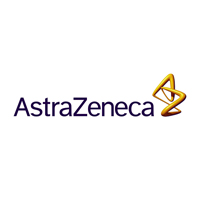AstraZeneca Plc (LON:AZN) and its partner Amgen Inc. (Amgen) announced that the US Food and Drug Administration (FDA) has granted Breakthrough Therapy Designation for tezepelumab in patients with severe asthma, without an eosinophilic phenotype, who are receiving inhaled corticosteroids/long-acting beta2-agonists with or without oral corticosteroids and additional asthma controllers.
A Breakthrough Therapy Designation is designed to expedite the development and regulatory review of medicines that are intended to treat a serious condition and that have shown encouraging early clinical results, which may demonstrate substantial improvement on a clinically-significant endpoint over available medicines.
The Breakthrough Therapy Designation is based on the tezepelumab Phase IIb PATHWAY data that showed a significant reduction in the annual asthma exacerbation rate compared with placebo in a broad population of severe asthma patients irrespective of patient phenotype including Type 2 (T2) biomarker status. Currently-available biologic therapies only target T2-driven inflammation. Tezepelumab is a potential first-in-class new medicine that blocks thymic stromal lymphopoietin (TSLP) – an upstream modulator of multiple inflammatory pathways.
Sean Bohen, Executive Vice President, Global Medicines Development and Chief Medical Officer at AstraZeneca, said: “Tezepelumab is exciting because it has the potential to treat a broad population of severe asthma patients, including those ineligible for currently-approved biologic therapies. The Breakthrough Therapy Designation will help us bring tezepelumab to patients as quickly as possible.”
This is the seventh Breakthrough Therapy Designation that AstraZeneca has received from the FDA since 2014, and the first for the Company in respiratory medicine. Tezepelumab is currently in development in the Phase III PATHFINDER clinical trial programme.
About Severe Asthma
Asthma affects 334 million people worldwide, and up to 10% of asthma patients have severe asthma, which may be uncontrolled despite high doses of standard-of-care asthma controller medicines and can require the use of chronic oral corticosteroids (OCS). Severe uncontrolled asthma is debilitating and potentially fatal with patients experiencing frequent exacerbations and significant limitations on lung function and quality of life.
Multiple inflammatory pathways are involved in the pathogenesis of asthma. T2 inflammation-driven asthma, which includes the eosinophilic phenotype, is present in over two-thirds of patients with severe asthma and is typically characterised by elevated levels of T2 inflammatory biomarkers, including blood eosinophils, serum IgE and fractional exhaled nitric oxide (FeNO). Conversely, approximately one-third of patients with severe asthma do not present with increased T2 inflammation.
About Tezepelumab
Tezepelumab is a potential first-in-class medicine blocking TSLP, an epithelial cytokine, critical in the initiation and persistence of airway inflammation. Blocking TSLP may prevent the release of pro-inflammatory cytokines by immune cells resulting in the prevention of asthma exacerbations and improved asthma control. Due to its activity early in the inflammation cascade, tezepelumab may be suitable for a broad population of patients with severe, uncontrolled asthma, irrespective of patient phenotype including T2 biomarker status. Tezepelumab is being developed by AstraZeneca in collaboration with Amgen.
About the PATHWAY Phase IIb Trial
The PATHWAY Phase IIb data were published in the New England Journal of Medicine and presented at the European Respiratory Society International Congress in September 2017. The trial evaluated the efficacy and safety of three dose regimens of tezepelumab as an add-on therapy in patients with a history of asthma exacerbations and uncontrolled asthma receiving inhaled corticosteroids/long-acting beta2-agonists with or without oral corticosteroids and additional asthma controllers, versus placebo. The trial showed annual asthma exacerbation rate reductions of 62%, 71% and 66% in the tezepelumab arms receiving either 70mg or 210mg every four weeks or 280mg every two weeks compared to placebo (p<0.001 for all comparisons), respectively. These results were observed independent of baseline blood eosinophil count or other T2 inflammatory biomarkers. The most common adverse events were asthma-related, nasopharyngitis, headaches and bronchitis.
About the PATHFINDER Phase III Programme
Building on the PATHWAY Phase IIb trial, the PATHFINDER Phase III programme was initiated in the fourth quarter of 2017 with two pivotal trials: NAVIGATOR and SOURCE. The programme includes additional planned mechanistic and long-term safety trials.
NAVIGATOR is a Phase III multicentre, randomised, double-blinded, parallel-group, placebo-controlled trial designed to evaluate the efficacy and safety of a regular, subcutaneous administration of tezepelumab for 52 weeks in adult and adolescent patients with severe asthma inadequately controlled despite treatment with inhaled corticosteroid (ICS) plus one additional asthma controller medication.
SOURCE is a Phase III multicentre, randomised, double-blinded, parallel-group, placebo-controlled trial for 48 weeks in adult patients with severe asthma who require continuous treatment with ICS plus long-acting beta2-agonists (LABA), and chronic treatment with maintenance oral corticosteroid (OCS) therapy.
About AstraZeneca in Respiratory Disease
Respiratory disease is one of AstraZeneca’s main therapy areas, and the Company has a growing portfolio of medicines that reached more than 18 million patients in 2017. AstraZeneca’s aim is to transform asthma and COPD treatment through inhaled combinations at the core of care, biologics for the unmet needs of specific patient populations, and scientific advancements in disease modification.
The Company is building on a 40-year heritage in respiratory disease and AstraZeneca’s capability in inhalation technology spans pressurised metered-dose inhalers and dry powder inhalers, as well as the Aerosphere Delivery Technology. The Company also has a growing portfolio of respiratory biologics including Fasenra (anti-eosinophil, anti-IL-5rɑ), now approved for severe eosinophilic asthma and in development for severe nasal polyposis, and tezepelumab (anti-TSLP), which is in Phase III trials and achieved its Phase IIb primary and secondary endpoints. AstraZeneca’s research is focused on addressing underlying disease drivers focusing on the lung epithelium, lung immunity and lung regeneration.
About AstraZeneca
AstraZeneca is a global, science-led biopharmaceutical company that focuses on the discovery, development and commercialisation of prescription medicines, primarily for the treatment of diseases in three therapy areas – Oncology, Cardiovascular, Renal & Metabolism and Respiratory. AstraZeneca operates in over 100 countries and its innovative medicines are used by millions of patients worldwide.








































